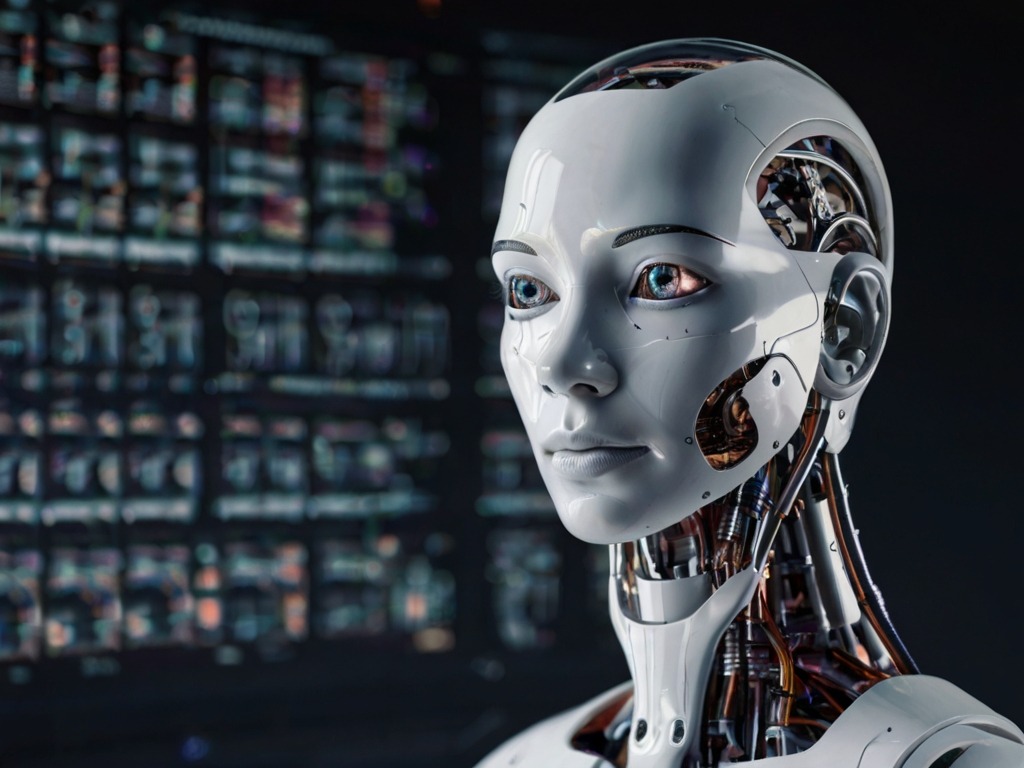Proficiency in Python
In the dynamic realm of Artificial Intelligence (AI), Python stands as the undisputed champion among programming languages. Its versatility, simplicity, and extensive ecosystem of libraries have made it the go-to language for AI development. However, thriving in the AI field as a Python developer requires more than just a basic understanding of the language. It demands a deep and diverse skill set encompassing technical prowess, domain expertise, and soft skills. In this comprehensive guide, we’ll delve into the essential skills that Python developers need to excel in the AI domain, providing detailed insights and resources for each.
Mastery of Python is the cornerstone of success in AI development. Beyond basic syntax and language constructs, developers should be adept at leveraging Python’s features for efficient and scalable code. This includes understanding advanced concepts such as generators, decorators, context managers, and comprehensions.
Resources: Online tutorials, interactive coding platforms (e.g., Codecademy, LeetCode), and books like “Fluent Python” by Luciano Ramalho can help developers deepen their understanding of Python.

Understanding of Data Structures and Algorithms
AI applications often involve processing and analyzing large volumes of data. A solid grasp of data structures (arrays, linked lists, trees, graphs, etc.) and algorithms (sorting, searching, dynamic programming, etc.) is essential for optimizing code performance and implementing AI algorithms effectively.
Resources: Books like “Introduction to Algorithms” by Thomas H. Cormen et al., online courses on data structures and algorithms (e.g., Coursera’s “Algorithms” by Princeton University), and platforms like HackerRank and LeetCode for practicing coding challenges.
Mathematics and Statistics
AI is deeply rooted in mathematical principles. Developers should have a strong foundation in mathematical concepts such as linear algebra, calculus, probability, and statistics. These concepts are vital for understanding and designing AI algorithms, particularly in areas like machine learning and optimization.
Resources: Online courses (e.g., Khan Academy, MIT OpenCourseWare), textbooks like “Mathematics for Machine Learning” by Marc Peter Deisenroth et al., and specialized courses on platforms like Coursera and edX.

Machine Learning (ML) Basics
Machine learning forms the backbone of many AI applications, from predictive analytics to computer vision. Developers should be familiar with fundamental ML concepts such as supervised learning, unsupervised learning, reinforcement learning, and ensemble methods.
Resources: Courses like Andrew Ng’s “Machine Learning” on Coursera, books like “Pattern Recognition and Machine Learning” by Christopher M. Bishop, and hands-on tutorials with popular ML libraries (e.g., Scikit-learn documentation, TensorFlow tutorials).
Deep Learning
Deep learning has revolutionized AI, enabling breakthroughs in areas like image recognition, natural language processing, and autonomous vehicles. Developers should understand neural networks, convolutional neural networks (CNNs), recurrent neural networks (RNNs), and modern architectures like transformers.
Resources: Courses such as the Deep Learning Specialization on Coursera, books like “Deep Learning” by Ian Goodfellow et al., and practical projects using frameworks like TensorFlow and PyTorch.
Data Manipulation and Analysis
Python offers powerful libraries like Pandas and NumPy for data manipulation and analysis. Proficiency in these libraries is crucial for tasks such as data cleaning, preprocessing, exploratory data analysis (EDA), and feature engineering.
Resources: Documentation and tutorials provided by Pandas and NumPy, online courses on data analysis with Python (e.g., Udacity’s “Data Analyst Nanodegree”), and real-world datasets for hands-on practice.

Natural Language Processing (NLP)
NLP enables machines to understand and generate human language, powering applications like chatbots, sentiment analysis, and machine translation. Developers should be familiar with NLP concepts such as tokenization, stemming, named entity recognition (NER), and sentiment analysis.
Resources: Courses like the Natural Language Processing Specialization on Coursera, books like “Natural Language Processing with Python” by Steven Bird et al., and hands-on projects using libraries like NLTK and spaCy.
Software Engineering Practices
Building robust and maintainable AI systems requires adherence to software engineering best practices. Developers should be proficient in version control systems (e.g., Git), collaborative development workflows, code documentation, testing methodologies, and agile principles.
Resources: Online tutorials on Git and GitHub, books like “Clean Code” by Robert C. Martin, and courses on software engineering practices (e.g., Udacity’s “Software Development Lifecycle”).
Problem-Solving Skills
AI development often involves tackling complex and ambiguous problems. Developers should hone their problem-solving skills through practice, critical thinking exercises, and participation in coding competitions and hackathons.
Resources: Platforms like HackerRank, LeetCode, and Kaggle competitions, as well as books like “Cracking the Coding Interview” by Gayle Laakmann McDowell.
Continuous Learning and Adaptability
The AI landscape is constantly evolving, with new algorithms, techniques, and tools emerging at a rapid pace. Developers should cultivate a mindset of continuous learning, staying updated with the latest research papers, attending conferences and workshops, and experimenting with new technologies.
Resources: Online communities like Reddit’s r/MachineLearning and r/Python, conferences like NeurIPS and ICML, platforms like Arxiv.org for accessing research papers, and specialized newsletters and blogs.
In conclusion, mastering AI with Python requires a multifaceted approach encompassing technical skills, domain knowledge, and soft skills. By investing time and effort in developing these essential skills and staying abreast of advancements in the field, Python developers can position themselves as proficient AI practitioners capable of tackling complex challenges and driving innovation in the ever-evolving landscape of artificial intelligence.



